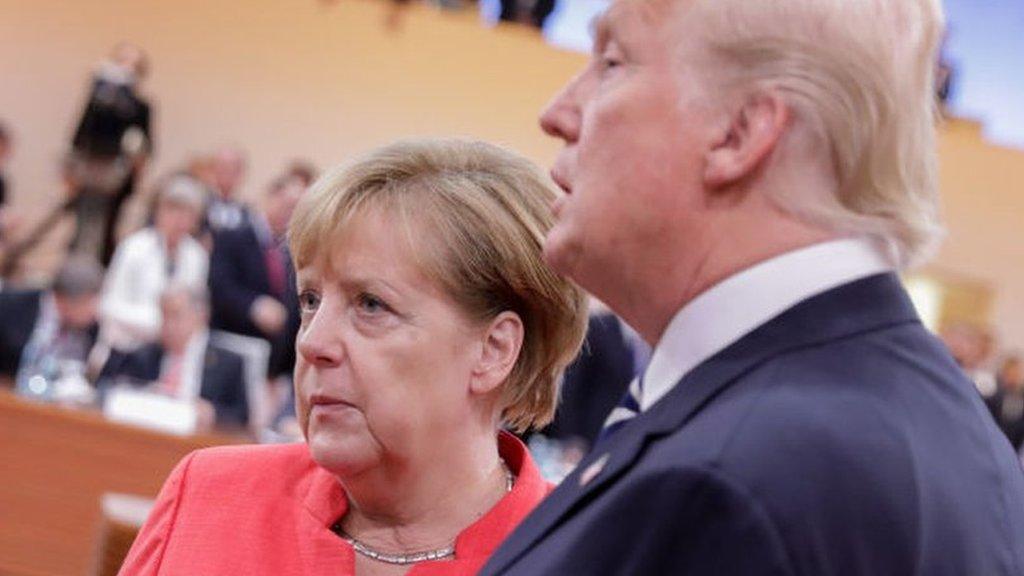Merkel visits Trump - so will she envy Macron's bromance?
- Published
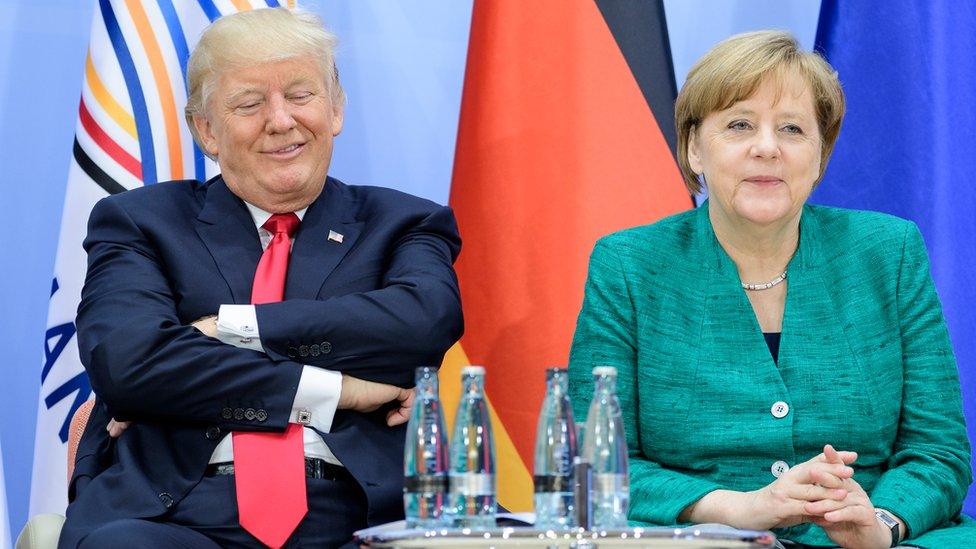
Hamburg, July 2017: Mr Trump and Mrs Merkel have major policy differences
It's hardly a match made in political heaven.
German Chancellor Angela Merkel has never had much in common with Donald Trump.
A free-trading, peace-loving supporter of the Iran nuclear deal will sit down for talks in Washington on Friday with a bellicose protectionist, who described as "insane" and "the worst ever" the accord that saw Iran limit its nuclear activities in return for the lifting of economic sanctions.
When the US president was first elected, few in Berlin thought the liberal, steady chancellor, not known for flamboyant display, would strike up any kind of relationship with the impulsive, dramatic Donald Trump.
Post-Obama difficulties
Certainly no-one expected a close relationship like the warm alliance which developed between Mrs Merkel and Barack Obama (once they had overcome the awkward revelation that the Americans had been listening to her mobile phone calls).
That relationship bore political fruit for Mrs Merkel - and her country. Germany's leader was the voice of Europe for America and the go-to interlocutor between the US and Russia, a result in part of President Vladimir Putin's grudging respect for Mrs Merkel.
Nevertheless, behind the scenes, officials believe that Mrs Merkel's first visit to Washington, in March 2017, was not the complete disaster they had feared. Despite some tricky moments (the unforgettable handshake that never happened), Mrs Merkel and Mr Trump do have a working relationship and are said to speak with some regularity on the phone.
Merkel handshake offer to Trump falls on deaf ears
So as her second visit approaches should Mrs Merkel - as the tabloid newspaper Bild asked - be jealous of that kiss between Donald Trump and Emmanuel Macron, during the latter's visit to the White House this week? Is the French president - the newspaper agonised between the lines - poised to replace Mrs Merkel as the leader to call in Europe?
After all, the daily Die Zeit notes, Donald Trump has far more in common with President Macron: they share a business background and both take a populist approach to politics.
Until recently, the newspaper argues, Mr Macron has avoided overt criticism of the US president. Angela Merkel has clearly and repeatedly voiced her disdain for some of his polices.
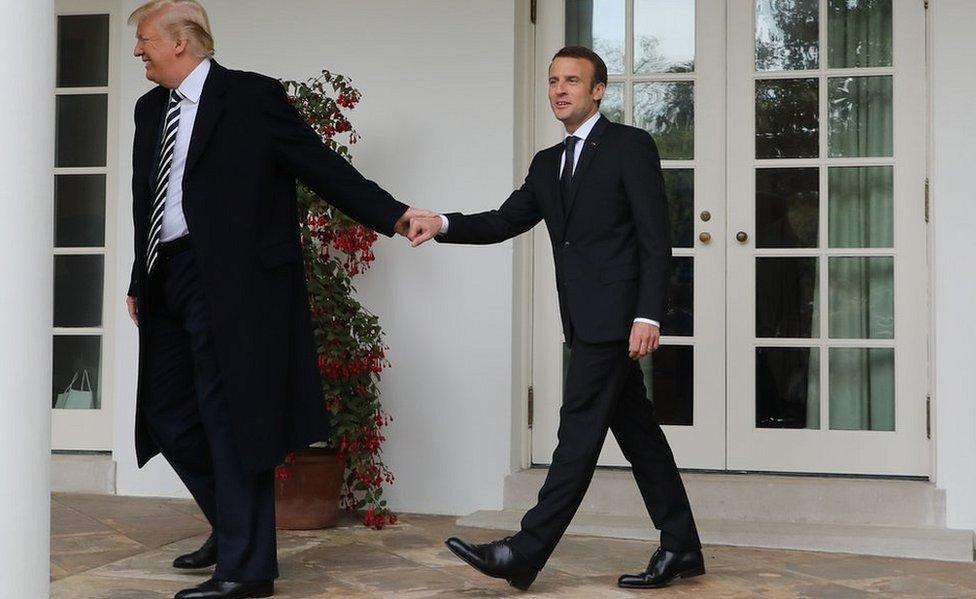
There was plenty of tactile body language between presidents Trump and Macron
Berlin has, doubtless, watched Mr Macron's visit closely. But, in reality, there is little concern about a race to become Mr Trump's new friend in Europe.
Concerned by Mr Trump's apparent disinterest in the EU, the French and German leaders prepared together for their respective visits to Washington. Character and style differ, but the message is broadly the same. Both the French and German delegations have been so closely co-ordinated that, sources say, this should be viewed as a single, orchestrated European approach.
Read more on this topic:
And so the agenda for Mrs Merkel's visit is already set and mirrors Emmanuel Macron's. At the very top, tariffs and trade. Mr Macron's visit has failed to produce a commitment from Donald Trump to exempt the EU from his tariffs on metal imports. With a 1 May deadline approaching, Mrs Merkel is under pressure from her EU peers to broker a permanent exemption.
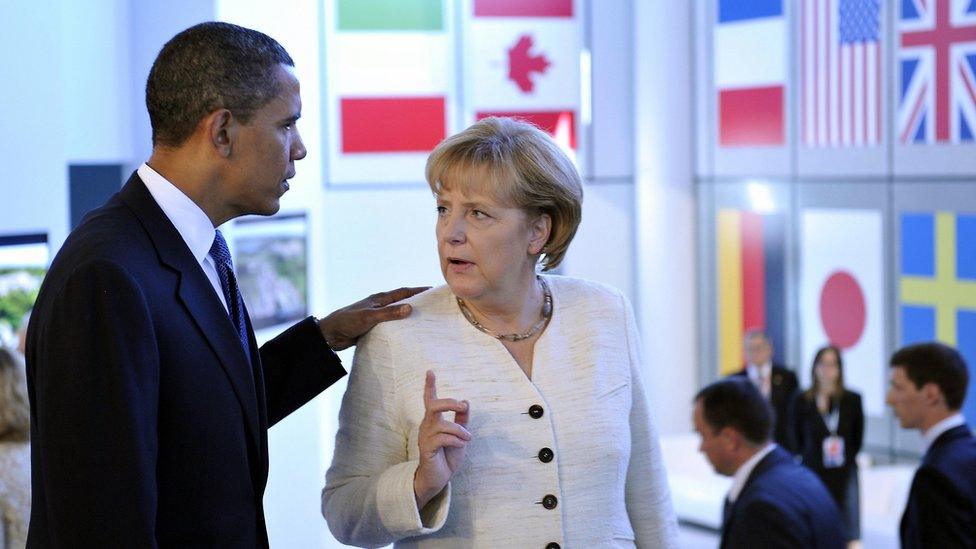
Mr Obama and Mrs Merkel were happy with the Iran nuclear deal; Mr Trump isn't
Then there is that other looming deadline. On 12 May Mr Trump must decide whether to reimpose sanctions on Iran, which would in effect scupper the nuclear deal.
Mr Macron has conceded that he failed to persuade the US president of the deal's value. Mrs Merkel will be prioritising the issue.
No one is pretending this will be easy. The leaders are also due to discuss Nordstream 2, Russia's controversial new pipeline that will bring natural gas to Europe, bypassing Ukraine and Poland. Donald Trump is not a fan. Mrs Merkel is, although she has recently begun to mute her support for the project, worried about the geopolitical ramifications.
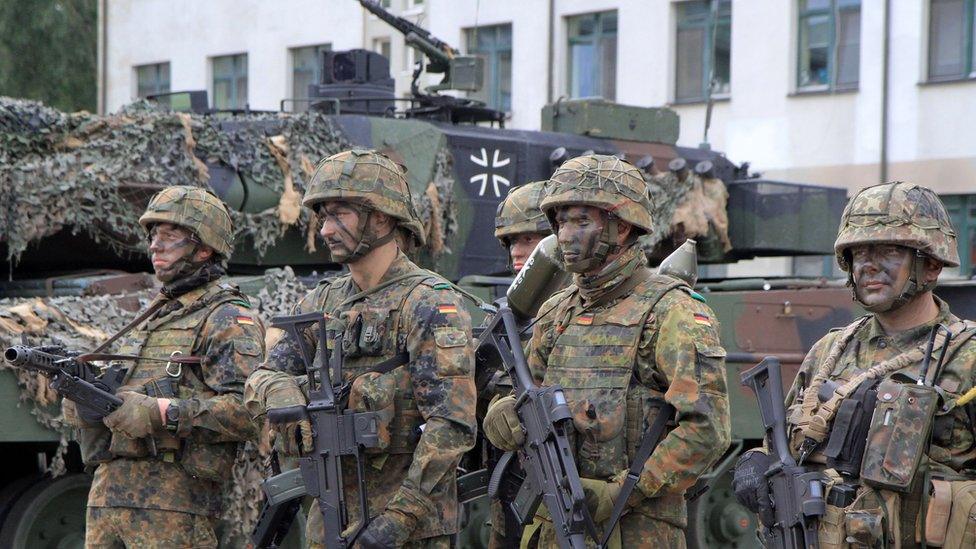
Mr Trump wants a bigger German contribution to defence
And, as if the leaders needed more controversy, the subject of Germany's contributions to Nato are also listed for discussion. Commentators note that Mrs Merkel won't want to be seen to cave in to Mr Trump's demand for higher payments (and a commitment to increase German defence spending was in place prior to his election). The Trump administration is not popular among the German electorate; even if she could, few here want to see their leaders cosying up to Mr Trump.
As Bild also noted, the newspaper unable to resist a gleeful tone, Mr Macron may have flattered the Trump ego, but he did not achieve much.
Angela Merkel is not one for turning on the charm in these situations. She'll take a pragmatic approach, but no one in Berlin is expecting miracles.
- Published17 March 2017
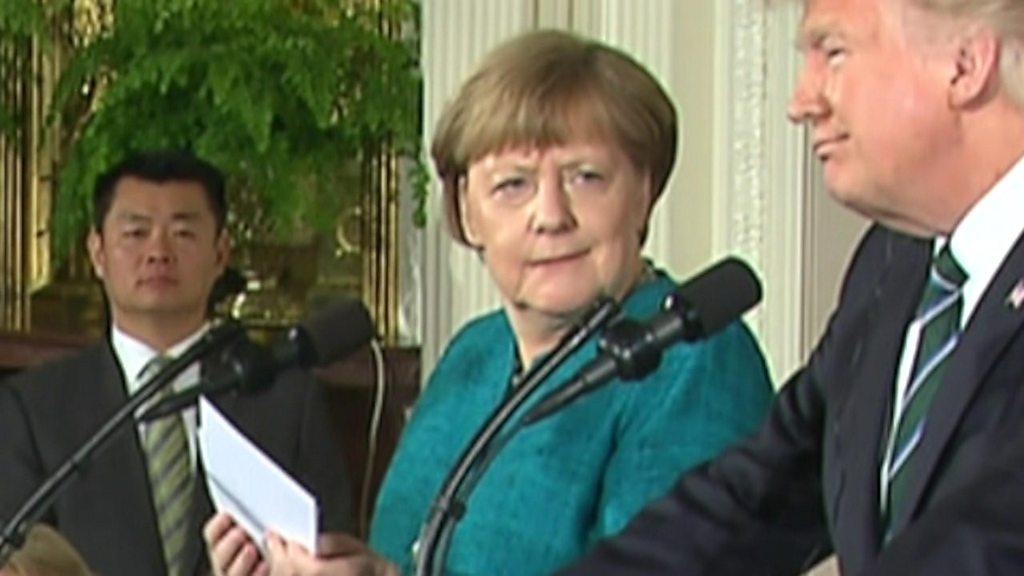
- Published9 March 2018
